Are you considering a career change and need to submit your resignation letter? Transitioning to a different industry can be both exciting and daunting, and crafting the right letter can make a world of difference. In this article, we'll guide you through a friendly and professional resignation letter template that respects your current employer while paving the way for your new adventure. So, let's dive in and explore how you can craft the perfect letter to say goodbye and hello at the same time!
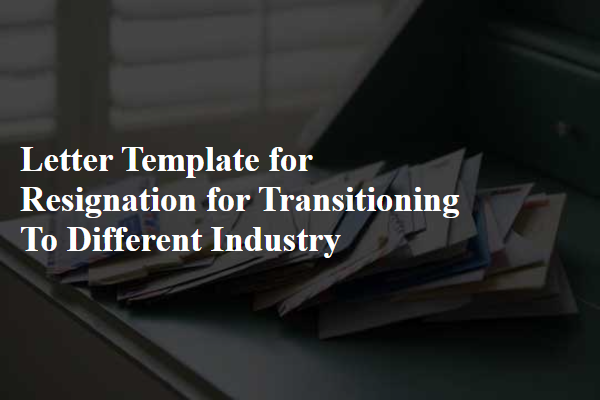
Clear Intent to Resign
A formal resignation from a position symbolizes a transition to a different industry, reflecting a significant career change. This decision often follows careful consideration of opportunities in emerging fields. It may involve articulating the intended departure date, typically providing a notice period of two weeks for a smooth transition, particularly in corporate environments. Additionally, expressing gratitude towards the organization, colleagues, and experiences gained contributes positively to exiting the company. Industry-specific phrases could emphasize the aspiration to explore new roles, such as in technology or healthcare, pointing towards skills acquisition and professional growth. This strategic communication reinforces professionalism and maintains relationships within the existing network.
Gratitude and Appreciation
Thank you for the invaluable experience during my tenure at [Company Name], a period that has greatly contributed to my personal and professional growth. I have had the privilege of working alongside talented colleagues and engaging in meaningful projects, particularly [specific project or initiative], which enriched my skill set. As I embark on my transition to the [specific industry] industry, I carry with me lessons learned and friendships formed. I deeply appreciate the support and mentorship provided by the team, especially from [specific individuals or groups], whose guidance has shaped my career path. This decision comes with a heavy heart, but I am excited about the new opportunities that lie ahead. Thank you once again for an unforgettable experience.
Brief Reason for Transition
Transitioning to a different industry, such as moving from finance to healthcare, often stems from a desire for personal growth and new challenges. The fast-paced nature of the finance sector, with roles often concentrated in high-pressure environments like investment banks, may lead professionals to seek more fulfilling work in areas that promote well-being and community impact. Exploring opportunities in healthcare can provide individuals with the chance to contribute to improving lives directly, especially in roles related to patient care or health technology. Such a transition reflects not only a shift in career focus but also a realignment of personal values toward meaningful work that resonates on a deeper level.
Notice Period and Transition Assistance
Transitioning from one industry to another can be a significant career shift that requires careful planning and consideration. Providing a notice period, typically two weeks to a month, allows the current employer time to adjust and find a replacement. This transition period is crucial for handing over responsibilities and ensuring that ongoing projects, especially those tied to specific timelines or stakeholders, are managed effectively. Offering transition assistance, such as training a new hire or documenting processes, demonstrates professionalism and respect for the team and the organization. This effort can strengthen relationships and create a positive exit, reflecting a commitment to the success of both the employer and the employee's new career path.
Contact Information for Future Correspondence
Transitioning to a different industry often requires clear communication with current employers. A resignation letter should reflect professionalism while outlining the intent to change career paths. Leaving an organization such as XYZ Corporation after five years of dedicated service can involve expressing gratitude for opportunities and experiences gained. Future correspondence may include personal contact details, such as email address and phone number, facilitating ongoing relationships. This professional courtesy ensures that lines of communication remain open, providing a basis for potential networking or referrals within the new industry. A structured approach emphasizes the importance of maintaining a positive rapport when moving into new ventures.
Letter Template For Resignation For Transitioning To Different Industry Samples
Letter template of resignation for exploring new professional opportunities
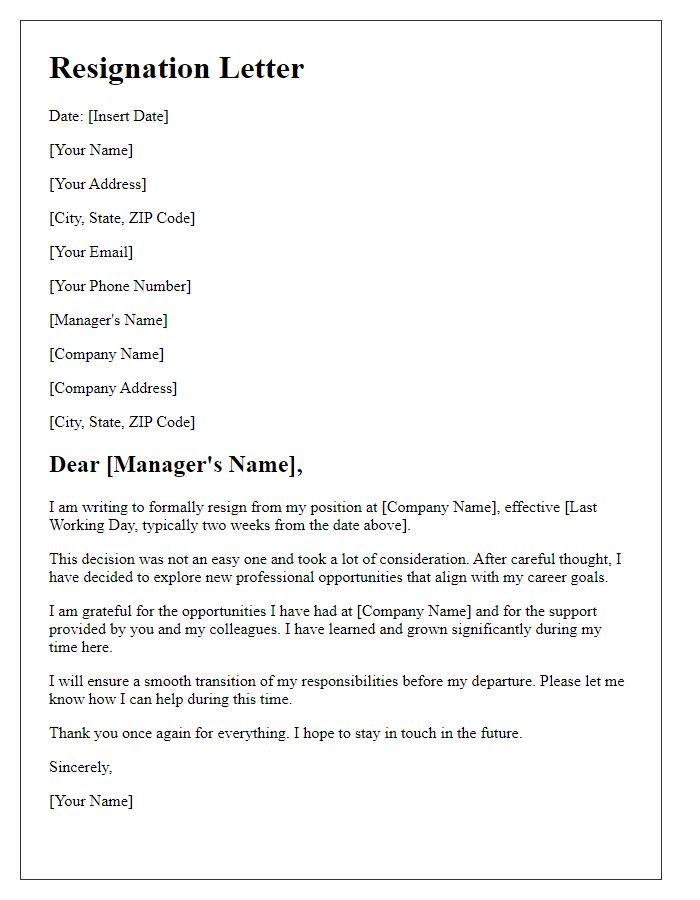
Letter template of resignation for embarking on a different career journey
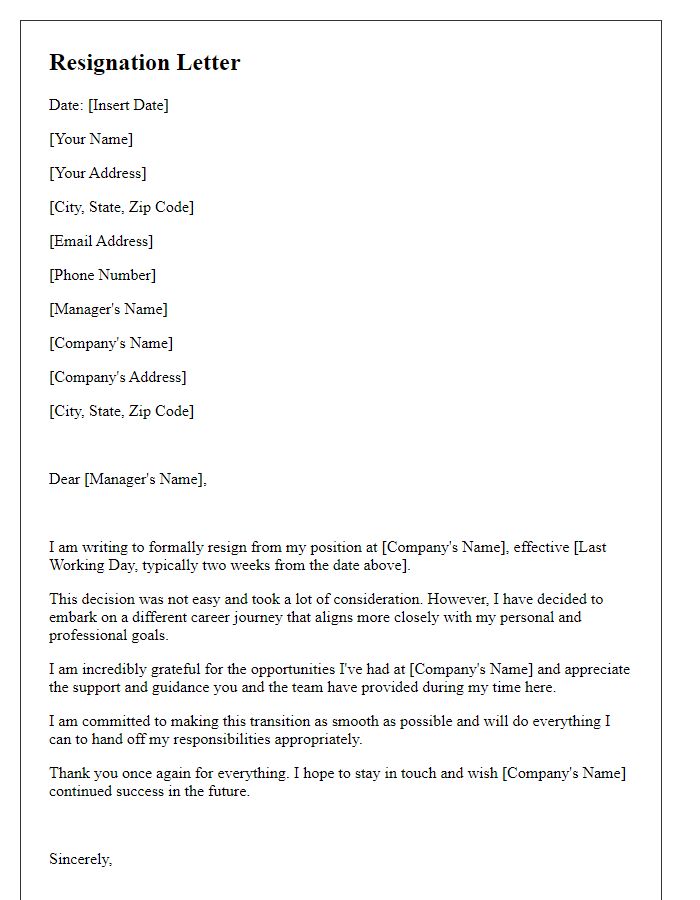
Letter template of resignation for seeking new challenges in another industry
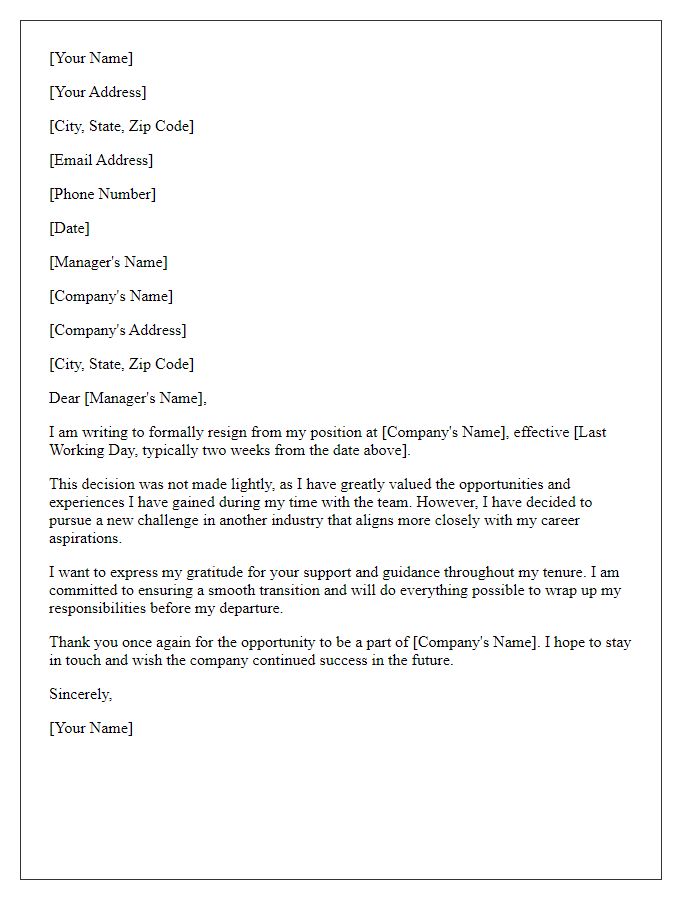
Letter template of resignation for transitioning to a new vocational pathway
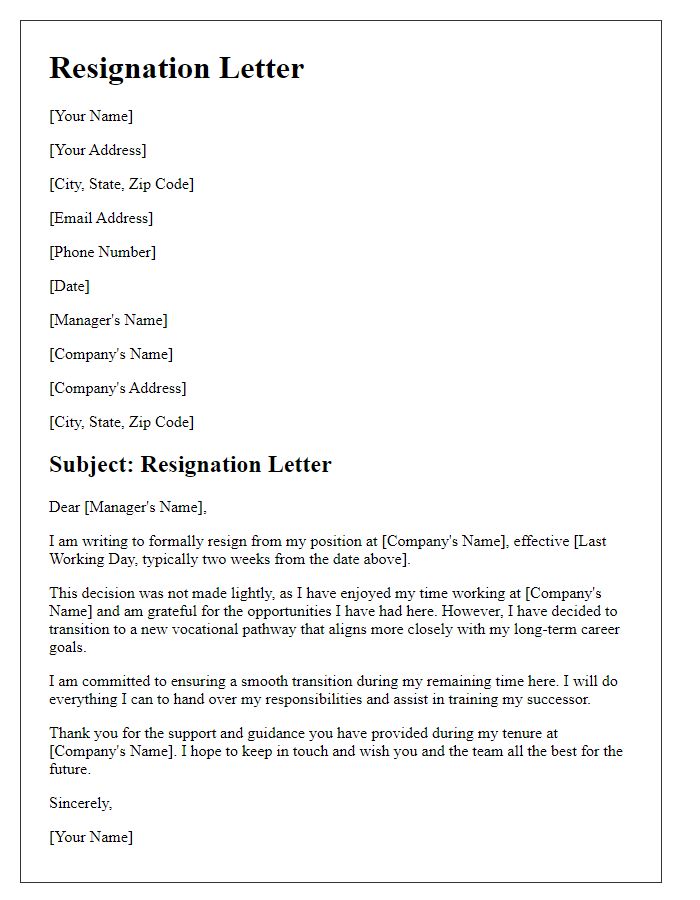

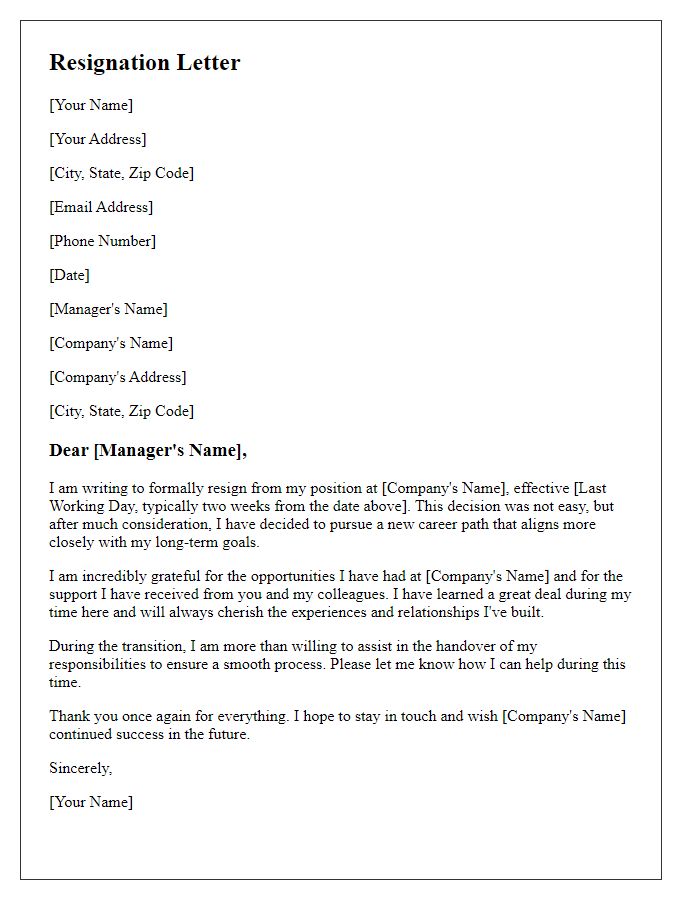
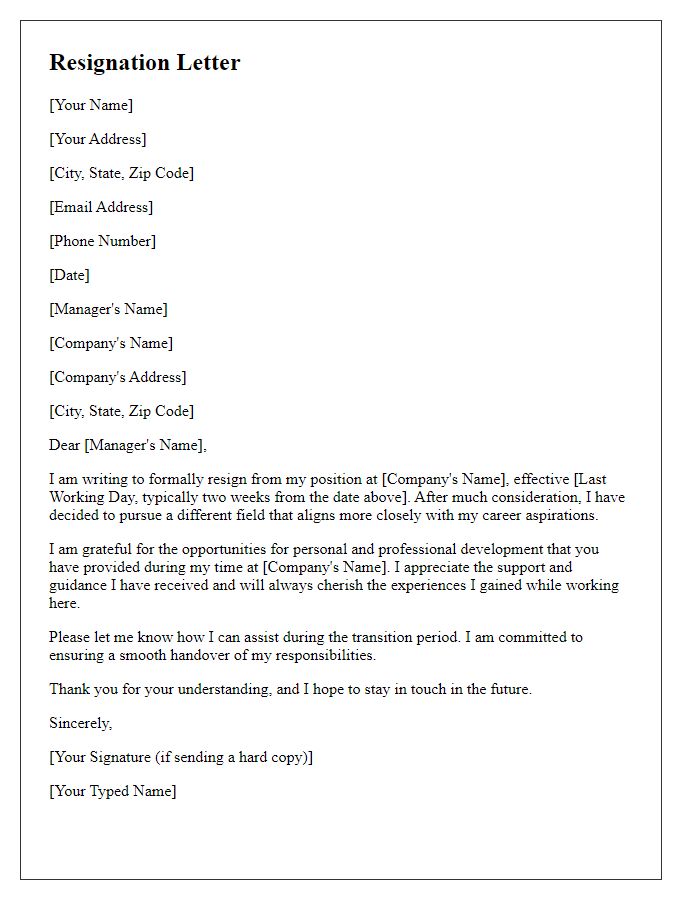
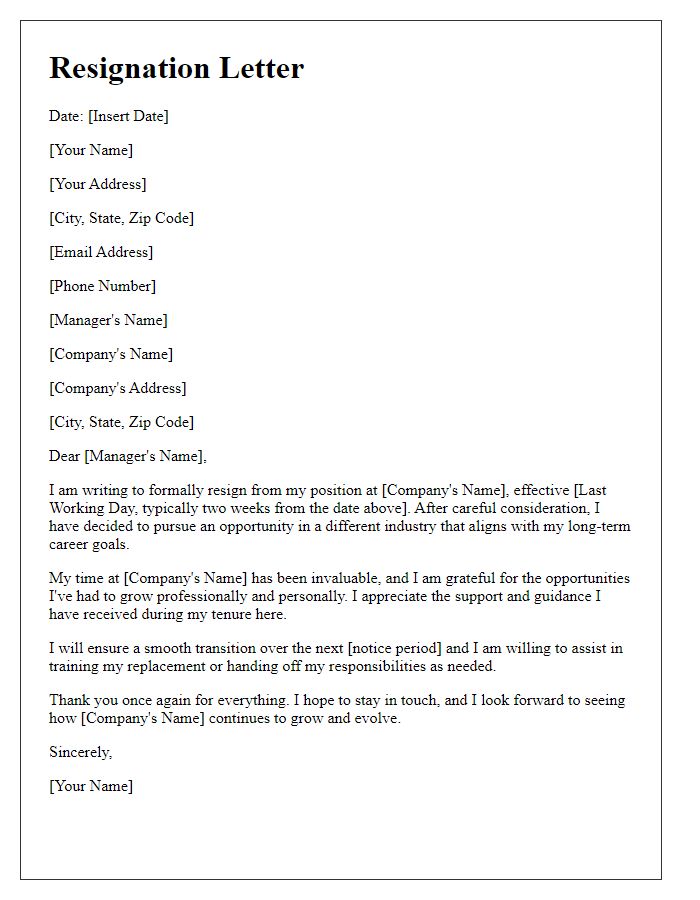
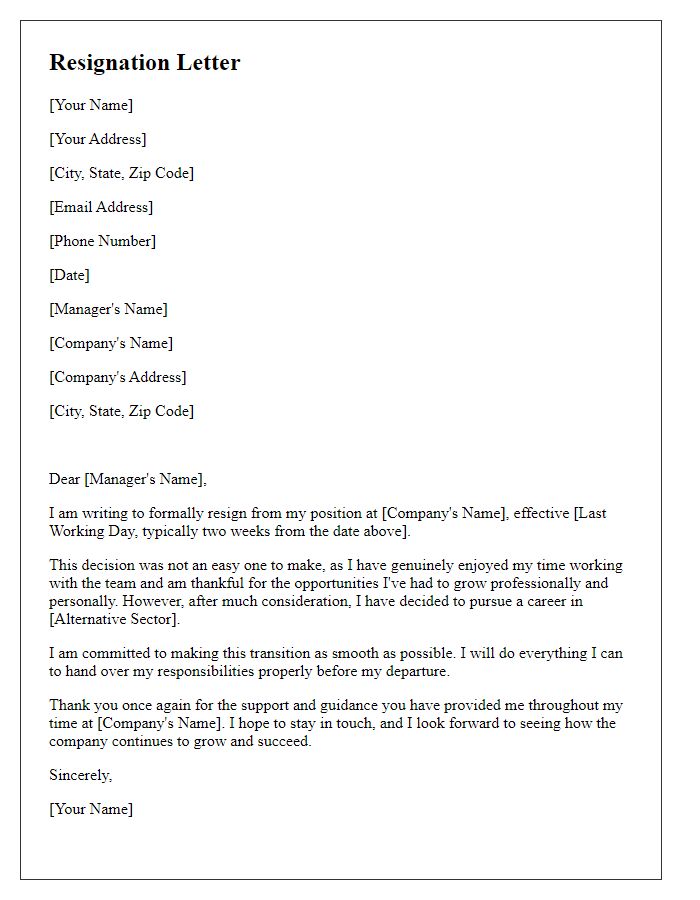
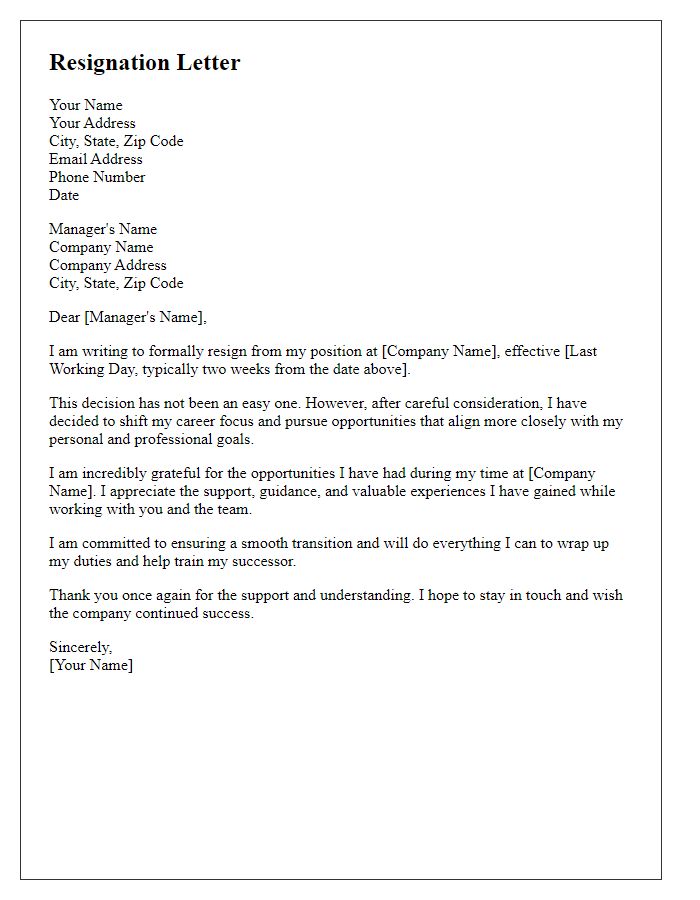
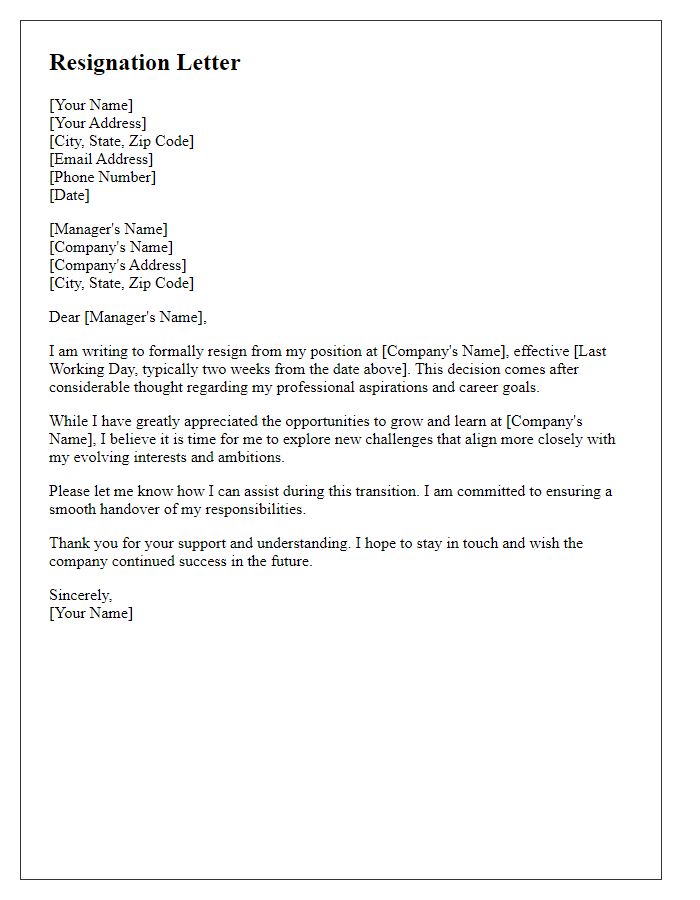


Comments